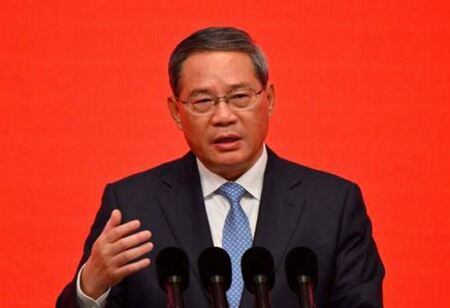
China Urges Global Consensus on Balancing AI Development, Security


Even if the tech race between Beijing and Washington is still going strong, China's Premier Li Qiang issued a warning that the advancement of artificial intelligence must be balanced against the security threats, and urged for a worldwide consensus was urgently needed.
His comments were made a few days after US President Donald Trump announced a bold low-regulation plan to solidify US leadership in the rapidly evolving field, vowing to "remove red tape and onerous regulation" that might impede the development of AI in the private sector.
Li announced the creation of a Chinese-led organization for worldwide AI cooperation and emphasized the importance of open-source development and governance at the opening of the World AI Conference (WAIC) in Shanghai.
"The risks and challenges brought by artificial intelligence have drawn widespread attention... How to find a balance between development and security urgently requires further consensus from the entire society," the premier said.
Also Read: CES 1991: Nintendo's Treason Made Sony Rule With PlayStation's Success
Li stated that Beijing was prepared to share advancements with other nations, especially developing ones, and that China will "actively promote" the development of open-source AI.
"If we engage in technological monopolies, controls and blockage, artificial intelligence will become the preserve of a few countries and a few enterprises," he said.
"Only by adhering to openness, sharing and fairness in access to intelligence can more countries and groups benefit from (AI)."
"Insufficient supply of computing power and chips" was cited by the premier as a bottleneck.
Also Read: Jan Koum: From Humble Beginnings to the Pinnacle of Silicon Valley
Concerned that China might utilize these cutting-edge chips to improve its military systems and challenge US technological leadership, Washington has increased its efforts in recent years to limit exports of these chips to China.
China, for its part, has made artificial intelligence (AI) a key component of its goals for technological self-reliance, and the government has promised a number of initiatives to support the industry.
At a time when artificial intelligence is being incorporated into almost every industry, its applications have brought up serious ethical concerns, such as the dissemination of false information, the effect on employment, or the possible loss of technological control.
58 nations, including China, France, and India, along with the European Union and African Union Commission, demanded better collaboration on AI governance at a summit in Paris in February.
However, the United States and the United Kingdom declined to join the summit's call for a "open," "inclusive," and "ethical" AI and issued a warning against "excessive regulation."

